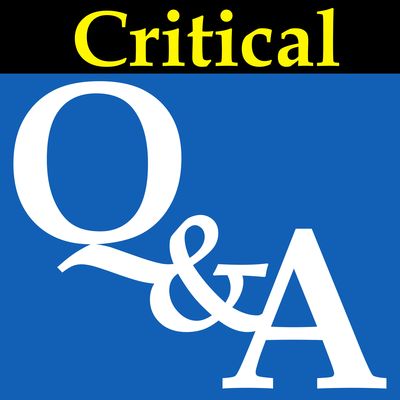This is the audio version of Chris Shelton's weekly Critical Question and Answer show on his YouTube channel. In this show, Chris answers questions posed by viewers in the comments section of his Q&A videos or sent by email to AskChrisShelton@gmail.com. Questions cover a wide range of topics but tend to focus on Scientology and critical thinking, as well as Chris' personal experiences with and in the Church of Scientology.
https://mncriticalthinking.com/posts/
Critical Q&A #169
The weekly show where I answer viewer questions left for me in the comment sections of my Q&A videos or sent to me by email at AskChrisShelton@gmail.com. This week, the questions I take up are:
(1) When you were on staff in Santa Barbara, did you ever come across or hear anything about, David Mayo and the Advanced Ability Center? Or was it fair-gamed out of existence before you arrived on the scene?
(2) Whether it is the Ten Commandments, the teachings of Jesus Christ, Buddha, or Muhammad, all major religions have a code of moral conduct. What exactly is Scientology’s code of moral conduct for its followers?
(3) If you could please comment on how you felt when you realized that you could be an autonomous person, that nobody has the right to direct your destination, how you operate your life, the rules, the order you want to establish for yourself. What was it like? Is it still something that you realize you are so grateful for that you are still continually excited about and are working on it, but with total peace and freedom? Don’t you think the realization that you are autonomous is a huge one after having been in a group where you are being told what to do, when to do it, how to do it, and what to think and what you are allowed to feel or not to feel?
(4) A while ago I remember you mentioned meeting Ron Miscavige Sr. when he gave you sales training once in the Sea Org. Did this tap into LRH tech or was it his pre-Scientology sales experience he used? You said he taught something along the lines that making a sale is a series of mental transactions. Sounds interesting, care to elaborate?
(5) I don’t know why I am surprised by the fact they operate with cash. Scientology and efficiency don’t seem to go together ever. Usually cash is looked upon as having the most liability – the chance of theft or loss, hard to track, etc. Were there ever any problems of theft of cash in the Sea Org? I imagine some just kept their little cache of money somewhere. Then again, maybe they are locked down so tight they wouldn’t dare. Just another quirk, I suppose. Did you receive pay stubs or receipts of any kind? Was there no need for tracking since everyone was a volunteer?
(6) I was just listening to Aaron Smith-Levin talking about the Aftermath Foundation, which I support as much as I can. I was thinking about Aaron’s interview with Nathan Rich and wondered if some of the people leaving Scientology are kids, who might otherwise be homeless, like Nathan was. Do they still have minors in the Sea Org?
